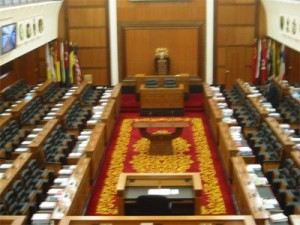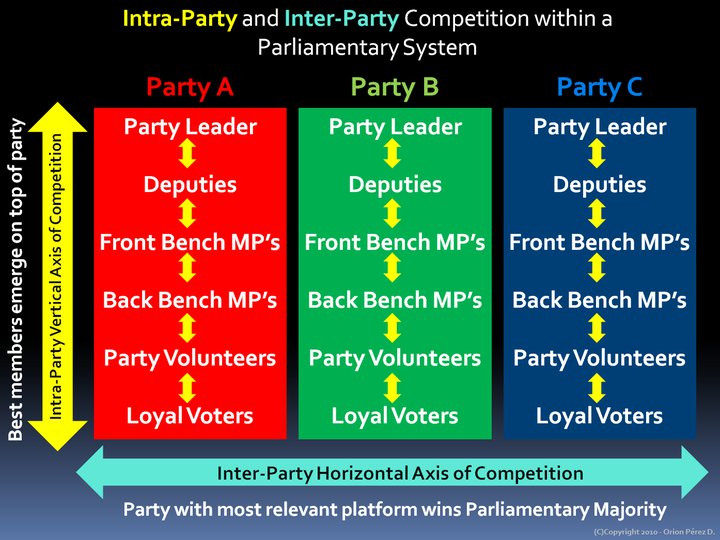Platforms & Competence: True leadership, not popularity politics.
The current Presidential System as defined in the 1987 Constitution is unfortunately a very unwieldy system whose electoral exercises have often turned out to be nationwide popularity contests. Worse, the current Philippine Presidential System’s inherent features have been found to be the cause of a lot of political instability as found in the research of numerous scholars such as Dr. Yuko Kasuya (“Presidential Bandwagon: Parties & Party Systems in the Phlippines“) and Dr. Clarita Carlos and Dennis Lalata (“Democratic Deficits in the Philippines: What is to be done?“).
 Instead of allowing for a competent leader to easily emerge on top of the government’s hierarchy, the current Presidential System in the Philippines features a personality-based popularity contest, often causing candidates with little real track-record or competence to emerge victorious.
Instead of allowing for a competent leader to easily emerge on top of the government’s hierarchy, the current Presidential System in the Philippines features a personality-based popularity contest, often causing candidates with little real track-record or competence to emerge victorious.
So much international research points to the superiority of the Parliamentary System of government when compared against the Presidential System. On practically all indices, be it GDP per Capita, Human Development Index, Corruption Perceptions Index, the Economic Freedom Index, the Democracy Index, and many others, the top 30 countries turn out to be dominated by countries using Parliamentary Systems. It is thus advisable that any exercise in correcting the errors of the 1987 Constitution will also tackle the need to shift from the unstable, popularity-driven, inflexible, and inefficient nature of the current Philippine Presidential System and thus adopt the internationally-proven, more stable, more efficient, more accountable, and more competence-based Parliamentary System.
The Prime Minister is the First Among Equals in government. He leads the executive branch which is known as the Cabinet of Ministers, who are responsible for setting the direction of each of the Ministries. He ascends to such office by virtue of being the leader of the majority bloc in Parliament, either as the leader of the party that wins the majority, or the leader of the largest party within a coalition of different parties that forms a majority bloc within parliament.

This explains why leadership quality in Parliamentary Systems is superior to the quality of leaders in Presidential Systems
As it turns out, within the different political parties, party members will compete against each other on the basis of their individual competence, leadership abilities, and track record, causing some of the best, most competent, and most seasoned party members to emerge on the top ranks as members of the front bench (poised to become Cabinet Ministers) and the best of them all to emerge as the leader of the party, poised to become the Prime Minister in the event that the party wins a parliamentary majority. The electoral contest, on the other hand, becomes a contest between parties. Different parties will thus compete against each other by showing that their Manifestos (called “Platforms” in the Philippines) are relevant to the needs of the People and will bring about a positive change in their lives. This has thus resulted in Parliamentary Systems having more policy and issue-driven politics where elections talk more about programs of government, plans and projects and “platforms”, rather than the individual personalities of the candidates running.
Check out this page to find links that discuss the Parliamentary System in detail.
[fikraticker spec_query=’category_name=Parliamentary System’]
[yd_list_posts spec_query=’category_name=Parliamentary System’]


 I believe: This is a CoRRECT™ Video with a very positive message
I believe: This is a CoRRECT™ Video with a very positive message Walang Natira: Gloc-9's MTV Rap about the OFW Phenomenon
Walang Natira: Gloc-9's MTV Rap about the OFW Phenomenon